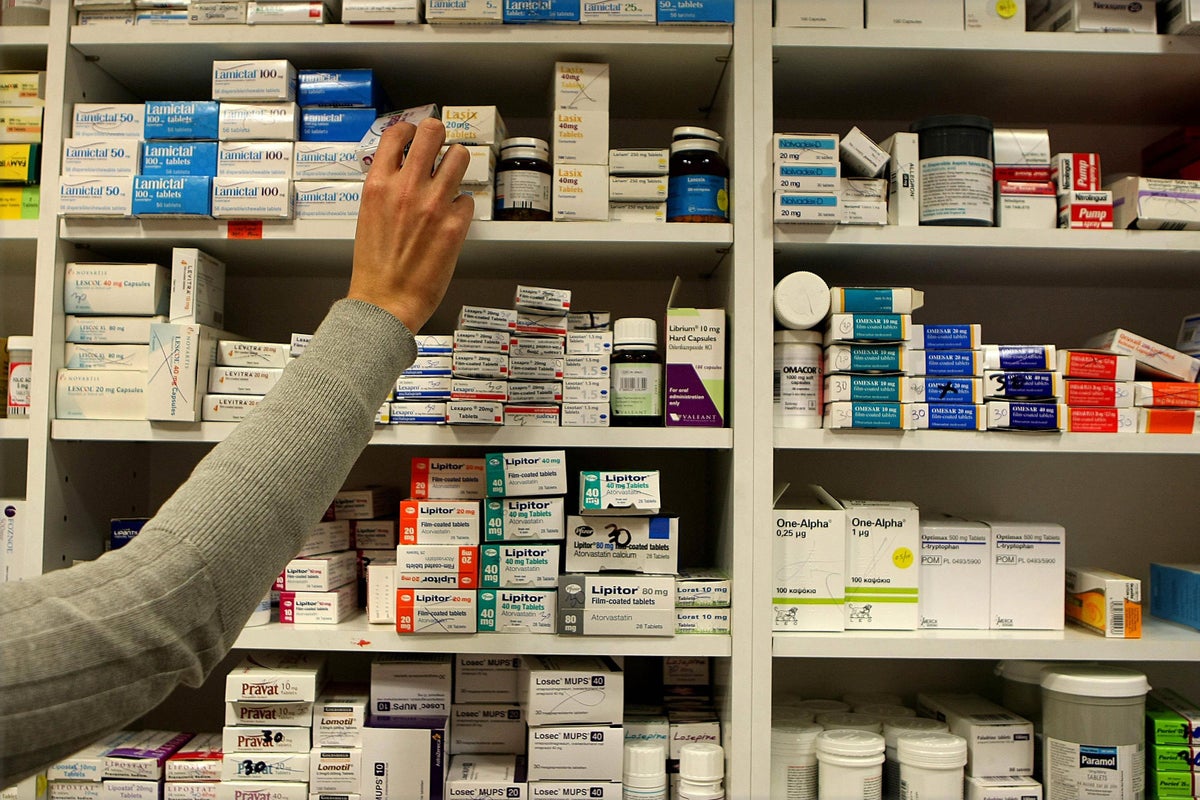
Proposals that would have seen spending on medicines in the UK increase by around £1 billion over the next three years have been shelved, according to the Government.
Officials launched a review of the voluntary scheme for branded medicines pricing, access and growth (Vpag) – an agreement to control the cost of sales of branded medicines to the NHS – earlier this year.
An “unprecedented offer” put forward by the Government in June would have increased net spending on medicines by around £1 billion by 2028, the Department of Health and Social Care (DHSC) said, although members of the Association of the British Pharmaceutical Industry (ABPI) are “unwilling” to take the offer to a board vote.
The ABPI said they had not been able to reach a conclusion on how an agreement would deliver on the Government’s ambition for the UK’s life sciences sector and industry’s aim to ensure innovative treatments reach NHS patients who will benefit from them.
Vpag is negotiated between the Government, NHS England and the ABPI which runs from 2024 to 2028.
It sets a cap on branded medicine sales to the health service, with companies signed up to the scheme paying a percentage of sales to DHSC when the cap is exceeded, known as headline payment percentage.
This money is then given back to NHS England.
The Government offer to the ABPI included bringing down the headline payment percentage in each remaining year of the scheme, which it claims would have been worth £1 billion over the next three years.
However, DHSC claims ABPI members are “unwilling” to take the proposals to a board vote.
It said the review will conclude for “the interests of patients and the NHS” and with the existing Vpag scheme “unamended”.
A Government spokesperson said: “Earlier this year, we launched a review jointly with the ABPI to ensure that it continues to deliver for both the industry and NHS.
“In June we put forward an ambitious, generous set of proposals for reforms that would increase spending on medicines, to support access to innovative treatments for patients in the NHS and incentivise further industry investment, whilst balancing other spending pressures in a tough fiscal environment.
“This was an unprecedented offer which would increase net spending on medicines by around £1 billion over the next three years with billions more expected over the next decade.
“It is regrettable that following weeks of delay, ABPI members are unwilling to take our proposals to a board vote.
“We have therefore determined that the interests of patients and the NHS are best served by concluding the review and continuing with the existing Vpag scheme unamended, while continuing to support the UK’s world leading life sciences sector through investment, innovation and reform as set out in our Life Sciences Sector Plan and 10 Year Health Plan.”
Richard Torbett, chief executive of the ABPI said: “While this review has concluded without reaching agreement, the issues it was set up to resolve remain unaddressed and continue to demand urgent action.
“We need to reach a solution that improves patient access to future innovation, allows the sector to fulfil its growth potential, and does not require industry to pay back nearly three times as much of its revenues as is required in other European countries.
“Together with global industry leaders, we want to continue constructive dialogue with government to find that solution.
“The NHS’s demand for innovative medicines has continued to grow in line with health demands.
“Yet the UK’s willingness to invest in new treatments has continued to fall, driven by uncompetitive and punitive rebates on company revenues, and cost-effectiveness thresholds used by the decision-making body Nice that have not fundamentally changed for nearly a quarter of a century.
“The UK will not realise the high ambition it has set for its life sciences sector until it addresses the core issue holding the UK back.
“For too long, the UK has sought to be the place where innovation happens, but not the place where it is used. Without change, the UK will continue to fall down international league tables for research, investment, and patient access to medicines.”
